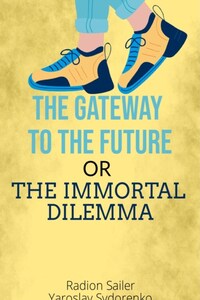INTRODUCTION
In the year 2175, the world has undergone a huge change. The advent of androids changed society and now 75 per cent of people are high-tech devices. When artificial intelligence (AI) reached unprecedented sophistication and capabilities in 2099, this huge shift began. The evolution of artificial intelligence has been an exciting experience. It has been marked by remarkable advances in thought processing and the introduction of androids into various areas of human life.
Achieving near-instantaneous thought processing was one of the most important milestones in the evolution of AI. Currently, androids can perform complex calculations and tasks with tremendous speed and efficiency as a single thought can be processed in milliseconds. In industries such as transport, healthcare and communications, this exponential growth in computing power has led to insane levels of convenience and productivity.
As androids became more integrated into society, they became more mainstream. They co-exist seamlessly with other humans, working together in various professions and contributing to the overall well-being of civilisation. Android integration has not only improved productivity, but also opened up new opportunities for collaboration and innovation. Androids have become indispensable aids on the path to progress due to their constant work and accuracy.
Humanity's exploration of space has also been made possible by advances in artificial intelligence. Colonies were established on the Moon, Mars and Venus, and the International Space Station was rebuilt to become a centre for interplanetary travel. These advances have opened up new opportunities for research in science and resource exploration. Humans were able to create sustainable habitats on these celestial bodies with the help of androids, paving the way for further exploration and possible colonisation.
The integration of androids and advances in artificial intelligence may partially explain the modern world in which Earth lives. Since the middle of the 21st century, humanity has endeavoured to create a sense of well-being throughout the world. Androids, through their intelligence and impartiality, have helped to resolve conflicts and promote co-operation between humans. With the well-being and prosperity of each individual in mind, the world adopted a collective vision of peace.
Humans also encountered alien beings in an age of exploration and harmony. Scientists were surprised that these alien beings were quiet and docile. The discovery of the existence of extraterrestrial life ushered in a new era of interstellar relations and diplomacy. Humans learned about the vastness of the universe and the diversity of life in it through peaceful co-operation.
The rapid increase in population worldwide has led to the development of megacities. With more than 12 billion people living on Earth, urbanisation has become a pressing issue. To meet the needs of a large population, cities have developed into huge megacities. Tall skyscrapers, advanced infrastructure and efficient transport systems made them stand out. The use of artificial intelligence and robots was vital to solve the problems arising in these megacities and ensure the well-being of their inhabitants.
Nevertheless, a confusing dilemma emerged amidst remarkable progress and achievements. The mortality limit of the population had inexplicably dropped and the reason was unknown. The population was concerned about this decline in mortality. The issue of the ethical implications of immortality has become more pressing as people are living longer and can live indefinitely. This has a significant impact on relationships, personal identity and most importantly what it means to be human.













